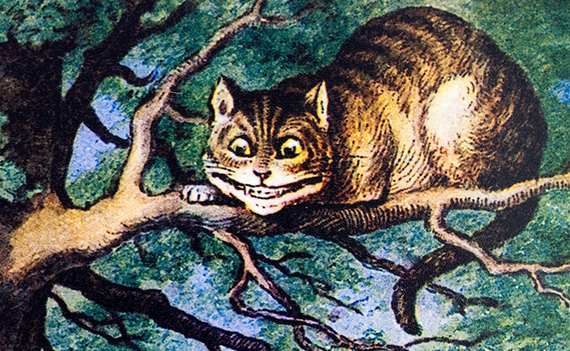Seven days; lots of science in the news. Here's our roundup of this week's most notable and quotable items:
Physicists created a quantum "Cheshire Cat" by separating a neutron's magnetic moment--a property tied to a particle's spin--and the neutron itself (much as the Alice in Wonderland cat's smile can be found separately from its owner). A female California octopus brooded over her eggs for 4.5 years, the longest period of any animal ever recorded.
Sleep-deprived people are more likely to form false memories, and those who drink heavily in middle age perform worse on memory tests later in life. A series of large craters found across Siberia may be sinkholes with a twist. One of the current theories is that the caverns were formed by both the melting of permafrost and ice in recent unseasonably warm summers, but also shaped by explosions caused by an underground buildup of methane released by the thawing permafrost. Long-distance runners are more likely to be felled by heatstroke than a heart attack. Researchers created a "transparent" mouse with a chemical treatment.
Some scientists want to look for traces of alien civilizations by sniffing for industrial pollution on exoplanets. Life may have been evolving on Earth even when the planet was getting bombarded with asteroids and comets. Theropods, the dinosaurs that gave rise to modern birds, were shrinking for more than 50 million years. NASA's Mars Opportunity rover has traveled 25.01 miles over its lifetime, passing the USSR's Lunokhod 2 lunar rover in total miles traveled and setting a new distance record for extraterrestrial land vehicles.
Female mice exposed to the banned pesticide DDT as embryos are more likely to develop obesity and type 2 diabetes, especially when fed high-fat diets later in life. Parts of the Arctic once totally locked in ice are now home to 16-foot waves. The moon is slightly lemon-shaped.
"This Week in Science" is presented by the World Science Festival, an annual celebration of science in New York City. To see engaging scientific conversations, learn about new discoveries and more, check out the Festival website.
